The real estate market has passed its "hottest" phase. However, real estate transactions using loan contracts still exist, with consequences that have not been resolved overnight. Therefore, before the State management agency further tightens the regulations of the law, people should consider and carefully study the terms of the loan contract when "putting pen" to sign a real estate transaction to avoid falling into a "dilemma".
Real estate transactions using loan contracts: Buyers are filled with regret! (Part 1) - From the "hot spot" of Floor Plan 584
Real estate transactions using loan contracts: Buyers are regretful! (Part 2) - Cooperation or "trap" of capital mobilization

Customers should research and choose real estate products with clear legal status and reputable investors (In photo: Xuan Hung Urban Area, Quang Thang Ward, Thanh Hoa City). Photo: PV
"The pen falls, the chicken dies"
Back to the story of Ms. LD - a customer who bought land at MBQH 2125 phase 2. Ms. LD said: “After "agreeing to buy and sell" with the land owner, I went to do the procedures to transfer the name of the loan contract with the company. Before signing the contract, I did not carefully research the legal aspects of the project, especially the information about the product I would buy (a raw house), but simply thought that I was buying a plot of land. I did not know how valuable the loan contract procedure was for the right to buy the product. When the investor announced that I had to urgently build a house, I took out the contract to read again; at the same time, I learned about the provisions of the law and found that transactions through loan contracts were very risky. Now in a "passive" position, my family had to do what the investor requested."
“If we carefully study the information about the conditions for buying and selling future housing as well as the legality of the loan contract and the complicated procedures involved, not only me but many people will not buy land in this form but will look for plots of land with clear legal status to transact” - Ms. LD shared more.
Customer LT C, who bought land at MB 584, said, "... before signing the loan contract, the broker took me to the BNB LLC leadership office to "introduce" the "sub-book" and promised that when the project was qualified, the land use rights certificate would be transferred immediately. Because I trusted both the investor and the broker, I signed a loan contract to "buy" two adjacent lots. Now, if I build a house, I'm worried about losing both "the cow and the barn"; but if I don't build, I don't know when I'll be able to get back the money I invested...".
Also the investor of the Commercial and Residential Area Project Lot A-TM3 (abbreviated as A-TM3 Site), in Dong Huong Ward, Thanh Hoa City, BNB Company Limited has been "stirring up" when customers reacted strongly to the business from April 2023 until now. According to many customers of A-TM3 Site, the investor has shown signs of ambiguity about product information, specifically "advertising" land for sale but "turning it into" unfinished houses; at the same time forcing customers to pay unreasonable amounts of money when they want to invest in building their own house.
However, at the time the enterprise mobilized capital in the form of a loan contract, the A-TM3 Plan had a decision approving the results of investor selection and in Decision No. 3345/QD-UBND, dated August 21, 2019 of the Provincial People's Committee, there was clear information about the scale of the project and the product was unfinished housing, finished exterior. "Accidentally" signing these contracts, customers had to accept, because even if they wanted to liquidate the contract, getting back the invested money is not easy, especially in the context of the sluggish real estate market and businesses facing difficulties like today.
Previously, Thanh Hoa Newspaper also received a petition for help from a number of households in Nong Cong, Thieu Hoa districts, Thanh Hoa city about "buying" land under a loan contract. However, when handing over the land to the "buyer", the land was being occupied by someone else.
According to Lawyer Le Thi Phuong, Director of Le Phuong Hoang Law Company Limited, Thanh Hoa Province Bar Association, there are two forms of loan contracts, and in both cases, customers are at a disadvantage.
Firstly, in case the loan contract does not have any content showing that the loan amount is related to the value of the land plot/land, property attached to the land in the borrower's project, the loan contract does not have the binding value that the borrower (who is also the project investor) must transfer to the lender the land use rights, specific property attached to the land. This contract is simply a civil loan contract, the risk is that when the real estate is eligible for transfer and the real estate price increases, for its own benefit, the investor does not enter into a real estate transfer contract but only agrees to repay the principal and interest (if any) to the lender, leading to financial loss for the lender.
Second, the contract contains a content showing the relationship between the loan amount and the plot/land plot, house in the borrower's project. The loan contract may be a case of a fake transaction, concealing the actual transaction which is a real estate sale transaction formed in the future (at this time the project is not eligible for sale according to the provisions of law). In this contract, if a dispute arises, one of the two parties brings the case to court, there is a risk that both the fake transaction (which is a loan transaction) and the concealed transaction (which is a real estate sale transaction) will be declared invalid by the court. The legal consequence is that the lender (buyer) only receives the money back but does not receive the real estate.
Learn the law carefully
As a potential investment channel, however, real estate formed in the future has many potential risks if the buyer does not carefully check the project's legality to ensure legal transactions.
The law now has very specific regulations on forms of real estate transactions. According to Mr. Vu Thanh Binh, Deputy Director of Thanh Hoa Department of Construction, after the Law on Real Estate Business came into effect, the Department of Construction has adopted many forms of propaganda and dissemination to organizations and individuals to comply with the provisions of the law on real estate transactions, especially real estate formed in the future.
Accordingly, according to Article 55 of the Real Estate Law No. 66/2014/QH13, the conditions for real estate formed in the future to be put into business are having documents on land use rights, project documents, construction drawings approved by competent authorities, construction permits in cases where a construction permit is required, documents on acceptance of the completion of construction of technical infrastructure corresponding to the project progress; in the case of apartment buildings or mixed-use buildings with residential purposes formed in the future, there must be a record of acceptance of the completion of the foundation of that building. Along with that, before selling, leasing, or buying housing formed in the future, the investor must have a written notice to the provincial housing management agency about the housing being eligible for sale or lease-purchase.
Along with that, Article 19 of Decree No. 99/2015/ND-CP also stipulates the signing of capital mobilization contracts for commercial housing development. Accordingly, the signing of capital mobilization contracts for investment in commercial housing construction can only be carried out through the forms prescribed in Clauses 2, 3 and 4, Article 69 of the Housing Law and must comply with the following regulations: Parties participating in capital contribution, investment cooperation, business cooperation, joint ventures, and associations are only allowed to divide profits (in cash or shares) based on the capital contribution ratio as agreed in the contract; investors are not allowed to apply the capital mobilization form prescribed in this point or other forms of capital mobilization to divide housing products or to give priority to registration, deposit, and the right to purchase housing or to divide land use rights in the project for the capital mobilization party.
 Many customers who are building houses at the Commercial and Residential Area Project Lot A-TM3, Dong Huong Ward, Thanh Hoa City are worried because they do not know when the investor will carry out the procedures to issue the Land Use Right Certificate. Photo: PV
Many customers who are building houses at the Commercial and Residential Area Project Lot A-TM3, Dong Huong Ward, Thanh Hoa City are worried because they do not know when the investor will carry out the procedures to issue the Land Use Right Certificate. Photo: PV
Mr. Vu Thanh Binh recommends: "When transacting real estate, customers need to clearly understand the provisions of the law, especially the legal documents of the project, the capacity of the investor, and the regulations on conditions for buying and selling capital to develop future housing to avoid risks when getting involved in projects with unclear legal status."
However, in reality, to "evade" the State's management regulations, investors use many different "tricks" and for the most part, the purchase and sale of future housing or capital mobilization is done through civil transactions with the concepts of "loan contracts", "deposits", "cooperation contracts"... "State management agencies have no basis to manage these forms of transactions", Mr. Vu Thanh Binh added.
With the excitement of Thanh Hoa real estate market, real estate products are always as expensive as "fresh shrimp". Most of the projects have been sold and "passed through" many secondary investors since they were "on paper"; but according to data from the Department of Construction, only 30/104 projects that have been approved for investment policy have been notified by the Department of Construction to be eligible for buying, selling or raising capital, proving the fact that the situation of "circumventing the law" buying and selling has been quite common. Luckily, we met a reputable investor who used the mobilized capital for the right purpose, and the customer's rights were guaranteed. In the case of encountering a "notorious" investor who "took" the money to invest in another project, the fact that the customer did not receive the real estate product or encountered troubles later on actually left many consequences.
Faced with the problems that customers are currently facing, especially the overlapping land allocation and delay in granting land use right certificates, Lawyer Le Thi Phuong, Director of Le Phuong Hoang Law Company Limited, Thanh Hoa Provincial Bar Association advises: Regarding the fact that the investor has not yet completed the procedures to grant land use right certificates to the buyer, a dispute may have arisen between the two parties. In case the two parties cannot negotiate and reconcile, the buyer can file a lawsuit against the seller in court for resolution. In the case of the same land plot where the investor signs a loan contract with a registration of wishes, or even signs a sales contract with many customers, there are signs of fraudulent appropriation of property as prescribed in Article 174 of the Penal Code 2015, amended and supplemented in 2017; customers in this case should submit a petition to the police investigation agency for acceptance and resolution.
Reporter Group
Source: https://baothanhhoa.vn/giao-dich-bat-dong-san-bang-hop-dong-vay-von-nguoi-mua-om-han-bai-cuoi-hieu-ro-phap-ly-han-che-rui-ro-217460.htm


![[Photo] Bustling Mid-Autumn Festival at the Museum of Ethnology](https://vphoto.vietnam.vn/thumb/1200x675/vietnam/resource/IMAGE/2025/10/4/da8d5927734d4ca58e3eced14bc435a3)


![[Photo] Solemn opening of the 8th Congress of the Central Public Security Party Committee, term 2025-2030](https://vphoto.vietnam.vn/thumb/1200x675/vietnam/resource/IMAGE/2025/10/4/f3b00fb779f44979809441a4dac5c7df)
![[Photo] General Secretary To Lam attends the 8th Congress of the Central Public Security Party Committee](https://vphoto.vietnam.vn/thumb/1200x675/vietnam/resource/IMAGE/2025/10/4/79fadf490f674dc483794f2d955f6045)

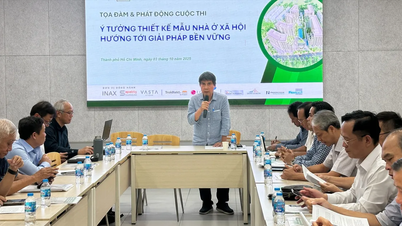





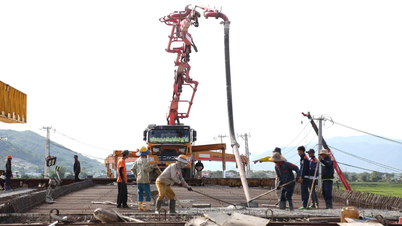

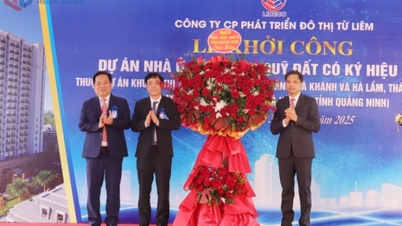



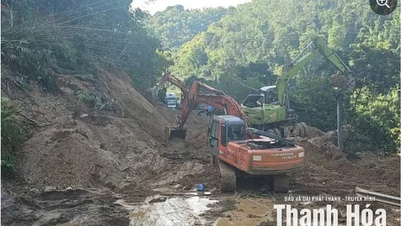



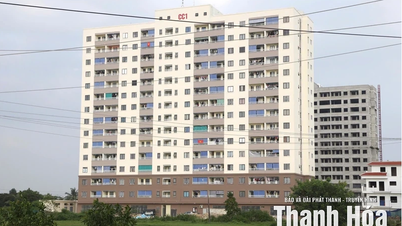






































![[VIDEO] Summary of Petrovietnam's 50th Anniversary Ceremony](https://vphoto.vietnam.vn/thumb/402x226/vietnam/resource/IMAGE/2025/10/4/abe133bdb8114793a16d4fe3e5bd0f12)

![[VIDEO] GENERAL SECRETARY TO LAM AWARDS PETROVIETNAM 8 GOLDEN WORDS: "PIONEER - EXCELLENT - SUSTAINABLE - GLOBAL"](https://vphoto.vietnam.vn/thumb/402x226/vietnam/resource/IMAGE/2025/7/23/c2fdb48863e846cfa9fb8e6ea9cf44e7)


































Comment (0)